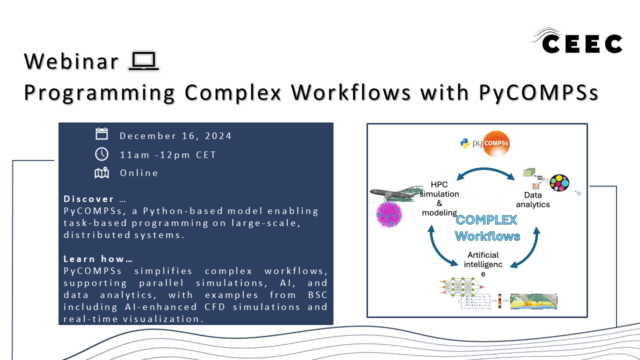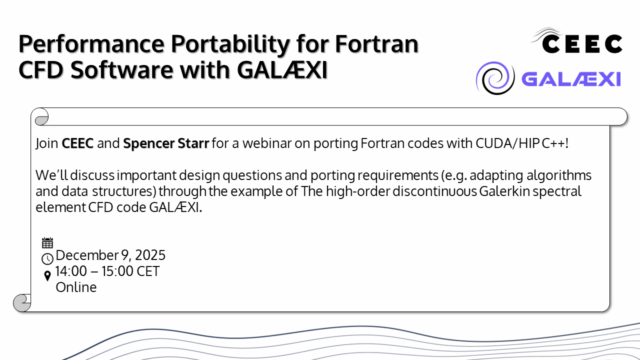Reliable and sustainable computations: An application-driven approach
In this talk, Roman Iakymchuk presents his work on accuracy and reproducibility assuring strategies for parallel iterative solvers that may not hold due to the non-associativity of floating-point operations. These strategies primarily rely on guarding every bit of result until final rounding, hence they can be costly. The energy consumption constraint for large-scale computing encourages scientists to revise the architecture design of hardware but also applications, algorithms, as well as the underlying working/ storage precision. The main aim is to make the computing cost sustainable and apply the lagom principle (”not too much, not too little, the right amount”), especially when it comes to working/ storage precision. Thus, he will introduce an approach to address the issue of sustainable, but still reliable, computations from the perspective of computer arithmetic tools. Before lowering precision, one must ensure that the simulation is numerically correct, e.g. by relying on alternative floating-point models/ rounding to pinpoint numerical bugs and to estimate the accuracy. We employ VerifiCarlo and its variable precision backend to identify the parts of the code that benefit from smaller floating-point formats. Finally, we show preliminary results on proxy applications.



